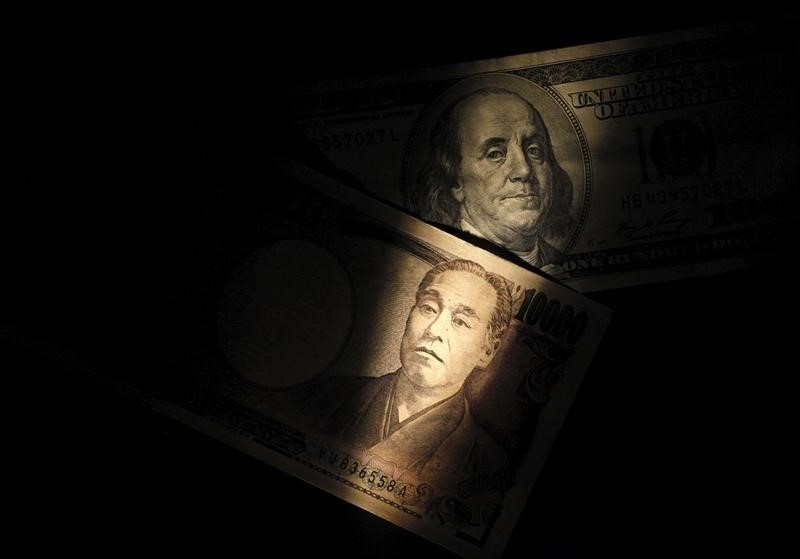By Gertrude Chavez-Dreyfuss
NEW YORK (Reuters) - The dollar slid against major rivals on Friday as investors took advantage of a minor pullback in U.S. bond yields from recent highs and a holiday-shortened week to consolidate gains that had propelled the currency to a nearly 14-year peak.
Expectations of higher U.S. inflation and interest rate hikes by the Federal Reserve have driven the greenback to a more than 6 percent gain in the last two months, its strongest showing over a similar period since early 2015.
Most currency players expect the gains to continue. But the combination of the U.S. Thanksgiving holiday, the processing of corporate flows before the month-end and perceived risks looming for markets in the first half of December led some to cash in gains now.
"The latest consolidation has many investors wondering if it's time to sell dollars," said Kathy Lien, managing director of FX strategy at BK Asset Management in New York.
"While there is no question that the dollar is getting ahead of reality and as tempting as it may be to pick a top, the latest pullback is small which means the better trade should be buying the dollar's dips until Fed Chair Janet Yellen tells us otherwise."
In afternoon trading on Friday, U.S. 10-year Treasury yields were up slightly from the previous session at 2.359 percent, but off from Thursday's 16-month high of 2.417 percent (US10YT=RR). U.S. two-year yields (US2YT=RR) slipped from a more than six-year high hit earlier in the session and were last at 1.130 percent. The step-back in yields drove a modest selloff in the dollar.
In early afternoon trading, the dollar index fell 0.3 percent to 101.42 (DXY) after hitting an almost 14-month peak the previous session. The index posted its largest one-day fall since early November.
After hitting an 8-month high of 113.90 yen
The euro rose 0.5 percent to $1.0601

Emerging market equities and currencies, meanwhile, have been hit hard by the specter of a possible Fed rate hike and potential U.S. trade protectionism under President-elect Donald Trump. The Turkish lira